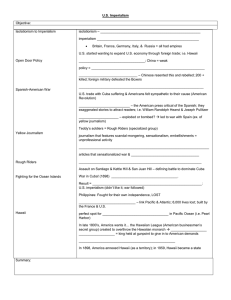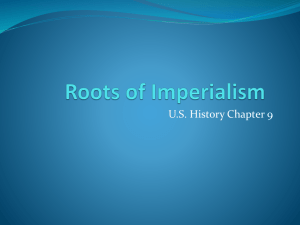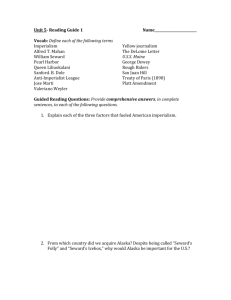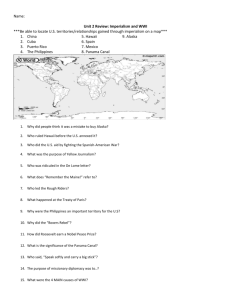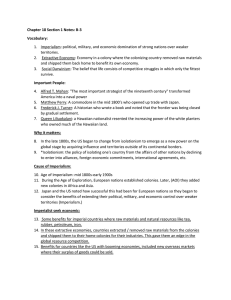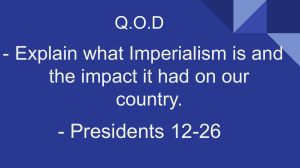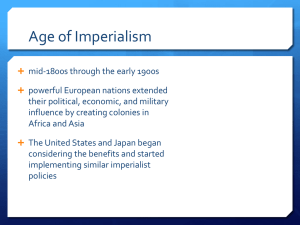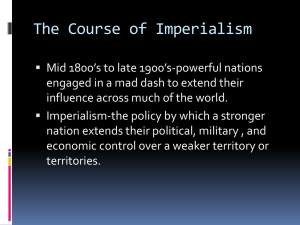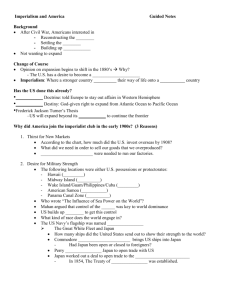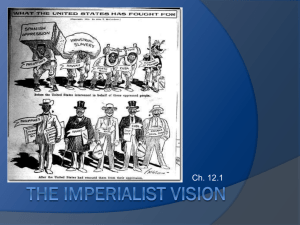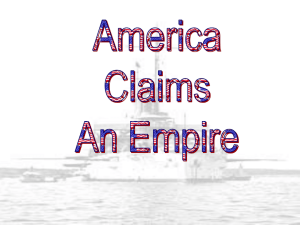America Claims an Empire,
advertisement
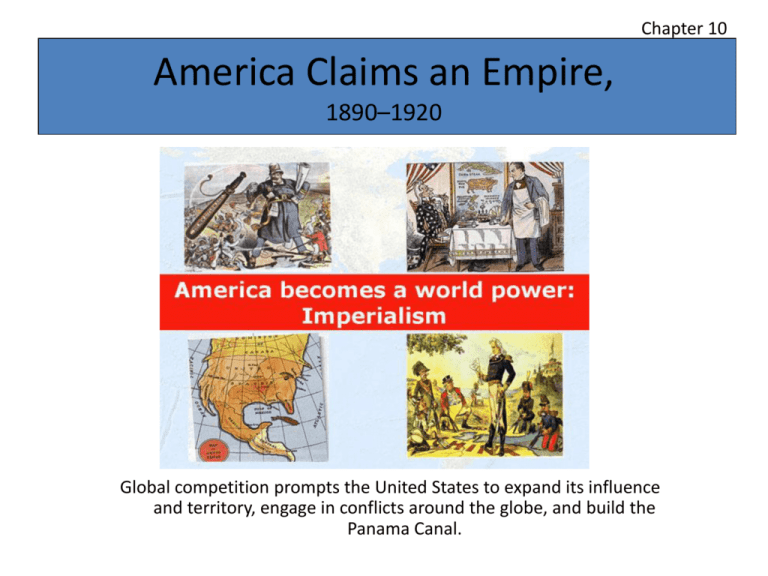
Chapter 10 America Claims an Empire, 1890–1920 Global competition prompts the United States to expand its influence and territory, engage in conflicts around the globe, and build the Panama Canal. Isolationism vs. Imperialism • Isolationism: policy of abstention from alliances and other international, political and economic relations. – Isolationists stand alone, do not get involved with affairs of other nations and have specific reasons for their non-involvement. • Imperialism: policy in which stronger nations extend their economic, political, or military control over weaker territories. – It includes exploitation of a weaker nation or territory for the benefit of another nation and its against the will of those who are dominated. Motives for American Imperialism Beginning in 1867 and continuing through the century, global competition causes the United States to expand. In 1800s, Europeans divide up most of Africa, compete for China. Japan joins race for China 1. Economic - “Thirst for New Markets” – U.S. needs raw materials, new markets for goods • – U.S. farms, factories produce more than Americans can consume Foreign trade: solution to overproduction, unemployment, depression 2. Military Strength – U.S. builds modern battleships and military bases • Admiral Alfred T. Mahan urges U.S. to build up navy in order to compete = strong nations have strong navies – Book: The Influence of Sea Power upon History argued that control of the sea was the key to world dominance U.S. Navy’s Great White Fleet 3. American Mission “Cultural Superiority” – Belief that American culture and institutions were superior, Social Darwinism was applied. – Argued the U.S. has a duty to Christianize, civilize “inferior peoples” and bring democracy to nonEuropean societies Debate over Imperialism • Imperialist – believed it was necessary for U.S. to control new territories. • Anti-Imperialist – did not believe trade should lead to domination of another nation. Violates “SelfDetermination,” the right of a people to choose a government without outside interference. Early Expansion • Alaska: – William Seward, Secretary of State under Lincoln, Johnson – 1867, arranges purchase of Alaska from Russia for $7.2 million • • has trouble convincing House to fund purchase Alaska called “Seward’s Icebox,” “Seward’s Folly” – Alaska rich in timber, minerals, oil; becomes state in 1959 • Hawaii: – Since 1790s, U.S. merchants stop in Hawaii on way to China, India – Mid-1800s, American-owned sugar plantations 75% of islands’ wealth – 1898, under President McKinley, Congress proclaims Hawaii U.S. territory Liliuokalani (1838-1917), Hawaiian queen and last monarch to govern the islands. A mining town in Alaska Left-Side “United States Takes Hawaii” Directions: on pages 344 – 345 [366 – 367] identified what occurred on the following dates: 1. 2. 3. 4. 5. 6. 7. 1875 1887 (two events) 1890 1891 1897 1898 1959 [p954] • Take-A-Stand: Was America justified in acquiring Hawaii? Explain.
